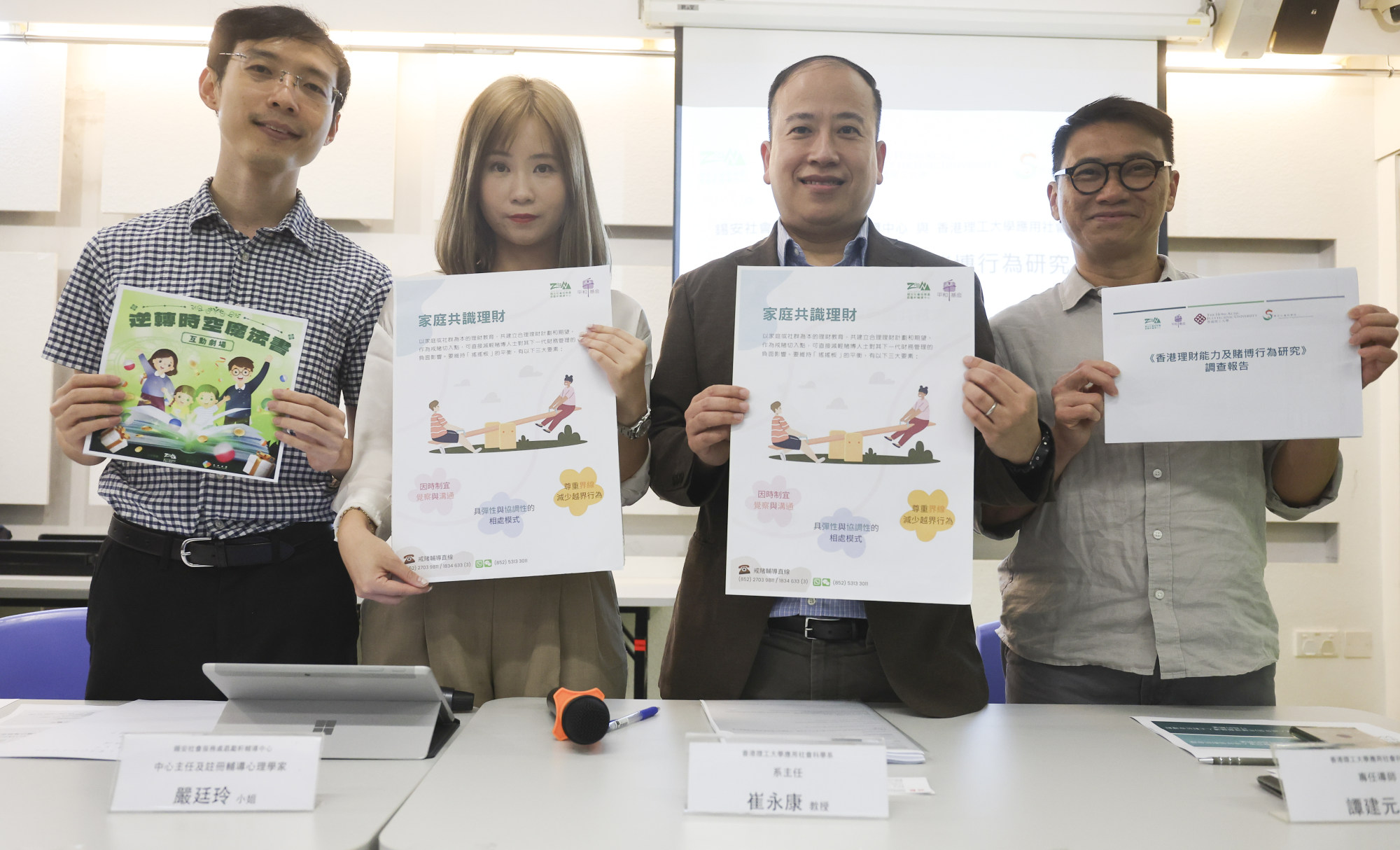‘I felt ashamed and lost’: Hong Kong NGO charts emotional cost paid by family members of gambling addicts

[ad_1]
Ever since she was young, Sandy* was living in the shadow of her mother’s addiction to gambling.
Her mother would bet until she was broke, losing so much at one point they lost their family home, she said.
“We were often threatened by loan sharks, who splashed red paint on our doors and tried to lock us in the flat … on one occasion my mom even lost our home to gambling,” said Sandy, now in her 40s.
As a result of a childhood growing up with deep-seated fears over financial stability, Sandy became extremely cautious with her own money, which became a source of tension with her mother later in life.
“My mom called me a miser because of that, and we often got into conflicts when I did not want to lend her money,” she said. “I felt ashamed and lost, there was nothing I could do, but I could not share with anyone.”

Her plight lasted for decades until she reached out to the Zion Social Service Yuk Lai Hin Counselling Centre, an NGO that specialises in offering assistance with managing gambling addictions.
Augusta Yim Ting-ling, a counselling psychologist in charge of the centre, said signs of a gambling disorder included betting more than one could afford to lose, sliding into debt and suffering emotional problems because of the habit, among others.
“There were more people gambling during the pandemic,” she said. “Some were earning less at that time and wanted to make quick money to sustain themselves. Some individual cases who already quit gambling picked up the habit again during that period, especially those in the catering industry.”
Working with Polytechnic University’s department of social sciences, the group asked 234 people who sought the NGO’s services in the past year to take lessons about financial literacy and how their gambling behaviour affected others. The study also received input from 82 of their family members.
The research, carried out between January 2022 and February this year, found 45 per cent of the respondents reported symptoms of mild to severe levels of gambling disorder.
Illegal gambling in Hong Kong on the rise during pandemic
Illegal gambling in Hong Kong on the rise during pandemic
They also scored significantly lower-than-average in financial knowledge, attitude, and behaviour, compared to the results of a 2019 citywide survey conducted by the Investor and Financial Education Council.
More than half said they had no confidence in planning for their retirement.
The family members reported being more self-disciplined with money, as they tended to save to repay the debts of their family members who gambled.
Yim said they also saw more people, especially youngsters, engaging in unconventional forms of gambling, such as claw machines, unaware they relied on chance.
Alarm bells rung over Hong Kong students’ gambling habits by counselling service
Alarm bells rung over Hong Kong students’ gambling habits by counselling service
She stressed that financial planning required more than a basic ability in maths that was commonly taught in schools.
“Financial management is not a personal matter, but a consensus among family members, they should sit down to discuss each others’ attitude on money and that process requires communication and emotional management skills to support,” she said.
Jelly Tam Tsz-ho, a registered counselling psychologist at the centre, said gambling behaviour often posed challenges to family relationships and the key to restoring bonds was to avoid making untenable promises.
“Gamblers tend to make promises about quitting the habit, so as not to be abandoned by their families, but those lies only destroy the trust and the relationship,” he said.
It was also important to put promises into action step by step, including repaying debts and cancelling credit cards, so gamblers could regain the trust of their loved ones gradually.
Professor Eric Chui Wing-hong, head of PolyU’s department of applied social sciences, said improving financial literacy using a family-based approach, was key to minimising the risk of gambling posed to society.
“Those in kindergarten need to know how to differentiate needs and wants in their daily lives, and those in university also need to learn what investment is, how to measure the risk and what could be the best way to manage their wealth,” he said.
*Name changed per interviewee’s request.
[ad_2]
Source link





